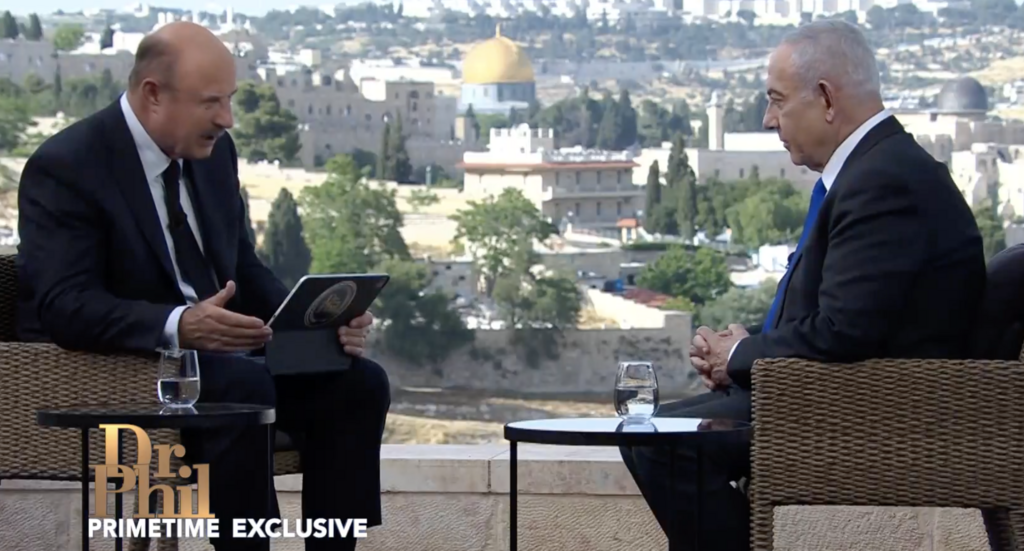
Prime Minister Benjamin Netanyahu hopes that he and President Joe Biden can overcome their difference of opinion over potential Israeli military operations in Rafah.
The U.S. and Israeli governments have publicly disagreed over these potential military operations due to concerns that they could lead to significant numbers of civilian casualties given more than a million people have fled there during the war.

“I’ve known Joe Biden for many years, 40 years or more. We often had our agreements, but we’ve had our disagreements,” Netanyahu told Dr. Phil in a nearly hourlong interview. “We’ve been able to overcome them. I hope we can overcome them now, but we will do what we have to do to protect our country, and that means protect our future. That means we will defeat Hamas, including in Rafah. We have no other choice.”
Earlier this week, Biden threatened to halt future offensive military aid to Israel, while the administration has already held up a shipment of thousands of large bombs due to concerns about the damage they could cause in a densely populated area like Rafah.
The specific package included 1,800 2,000-pound bombs and 1,700 500-pound bombs, Maj. Gen. Patrick Ryder, the Pentagon spokesman, confirmed on Thursday.
“If they go into Rafah, I’m not supplying the weapons that have been used historically to deal with Rafah, to deal with the cities — that deal with that problem,” Biden said in a CNN interview that aired on Wednesday.
His public threat to halt offensive military aid came after Israel’s forces ordered people sheltering in parts of Rafah to evacuate and they began limited ground operations.
It also came after weeks of public messaging from the administration strongly stating their opposition to a full-scale ground invasion without comprehensive planning for the more than 1 million Palestinians that have already fled to Rafah during the war.
The Israeli military began its military operation in northern Gaza and has proceeded south. Rafah, which is along Gaza’s southern border with Egypt, is the last remaining place Israel has yet to conduct operations.
The prime minister said they had destroyed roughly 20 of Hamas’s 24 battalions, and the remaining ones are in Rafah.
“We can’t leave them there,” Netanyahu said of the intact battalions. “What they are trying to do is extort [or] blackmail us to leave Gaza. Leave them in place, these battalions, leave their leadership in place, and they go take over Gaza again and do it again. They’ll rape, they’ll kidnap hostages, and they’ll murder again and again and again.”
CLICK HERE TO READ MORE FROM THE WASHINGTON EXAMINER
More than 34,000 Palestinians have been killed since Israel began its military operations in response to Hamas’s Oct. 7 terrorist attack, according to the Hamas-controlled Gaza health ministry, whose tally does not distinguish between civilians and combatants.
Netanyahu told Dr. Phil that Israeli forces have killed 14,000 terrorists and roughly 16,000 civilians. Hamas intentionally embeds itself within and underneath civilian populations to use them as human shields.





